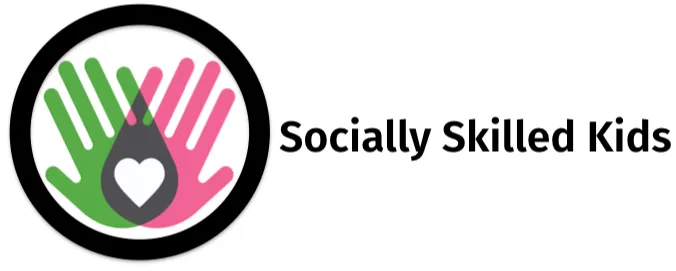How to Respond to the Student Who Always Argues
Jul 16, 2020
Are you a classroom teacher with a student who is always arguing and/or analyzing everything you {and their peers} say or do? Do they debate even the smallest of requests that you make causing constant power struggles? Do they become argumentative with peers, even those who are trying to be friendly to them, causing them to have few or challenging friendships due to this problem behavior?
Having this student behavior management issue with a student who constantly argues can be very frustrating!

Figuring Out The “Why”
The first thing I always do, is try to pinpoint the reason for the behavior. Is there a direct correlation that you can pinpoint?
An effective teacher will ask themselves why the student engaging in this behavior. What is he/she trying to say? Beyond the words, what message is he sending?
Students who engage in this type of student behavior management issue are often seeking the best way to have control. They want to control the situation, the conversation, the game, etc. This is usually due them having a difficult time with; Rigid Thinking, Poor Understanding of Empathy, Poor Understanding of Point of View, Perspective Taking, and Fact vs. Opinion.
Some students also have low self esteem, feel they are disrespected or that they never get a chance to talk {whether real or perceived} and share all of their amazing knowledge {whether it really is or is just a special interest of theirs}.
Unfortunately, there is not a quick fix for this, but rather, a lot of work needs to be done to help a student for whom these are challenges. That said, there are some things you can do, to help or at least de-escalate the situation caused by these behavioral issues.
Here are a few things to try “In the moment”
A Shut Down Phrase
When the student argues or over analyzes, the first time, offer a rote phrase to show you heard him but are not going to “get into it.” I call it a “shut down phrase.” Yoou can use a "shut down phrase" to stop this disruptive behavior like:
- “I hear that you…”
- “we can talk about that later.”
- “so noted.”
- “ah-ha.”
- “hum…”
Keep it very short with these individual students. Use very few words and an even tone. Do not let the student see/hear you get frustrated with them or notice your negative reactions during this difficult situation {easier said than done}.
This is a great way to just move on and continue with what you were saying. Beyond that, ignore further attempts to argue or analyze. If you give them negative attention and go down the “rabbit hole” with him/her for the rest of the school day, you are reinforcing the behavior.
Ignore It
Ignoring is super tough to do with all grade levels but a very important part of student behavior management with a student who continuously blurts/argues with the entire class. You will never win an argument with a child who does this classroom behavior. They always find a way to win, generally because they have fewer social/emotional boundaries than you do.
What you are trying to do, is cut the behavior short, while not reinforcing behavior problems without meaning to, and then at another time….work on the specific skills the student needs to improve on, in order to stop engaging in this behavior.
Provide An Alternative
Provide an alternative way for the child to express themselves. For example, try giving the student a notepad to write down his questions or topic changes, to be discussed at a later, agreed-upon time.

This, however, will only help you out in the short term. It may allow you to finish your sentence and lesson, so you don't disrupt the learning process! That way, you can be sure students learn the skills needed to stop arguing, or to make his/her point in an acceptable way. To do this, you will most likely need to teach the student explicit social skills to help them exhibit appropriate behavior. this school year.

Social Skills I recommend teaching the student in a small group setting
In order for the student who always argues, to stop; he or she will need to learn the social skills they are lacking, to do so. They may need to learn some or all of these:
- How to “argue” {or explain your perspective} his point in a respectful way. To use words like, “I think” vs. “That’s wrong….”
- A Debate vs. An Argument
- Respect: words used, body language used, no blurting…how to wait for a turn to talk, stay on topic, let small things go…etc.
- Opinion vs. Fact: it’s okay to have different opinions - this may be a difficult task for for your argumentative student
- Perspective Taking: People have different points of view and it’s okay.
- Point of View
- Empathy
- Thought Bubble Thoughts {filter thoughts so that highly negative words don’t come out but are softened to be more socially acceptable}
- Social Fake {saying something polite vs. true during social interactions or class discussion}
- Voice Volume and Tone
- Negotiating {fairly and respectfully}
Sound like a lot? That’s because it is!
Need an activity to help you teach your students how to negotiate? I have created a fun little activity that may be just what you need to help your students shine and exhibit these appropriate behaviors. Students get to role play how to negotiate. This important skill takes lots and lots of practice to see student success!

Grab This Activity For Disruptive Student Behavior Management and Much More!
Simply enter your name and email address in the form below and you’ll have immediate access to this digital download. By completing the form, you’ll also be joining thousands of like-minded teachers who have already signed up for my free club, The Teacher’s Lounge.
This is a 100% free club where you get awesome social skills resources delivered straight to your in-box each week!
These resources include my monthly Tips & Tricks newsletter {for a particular social skill each month}, as well as a variety of posters, visuals, games and activities designed to support the identified social skill.
Enter Your Information To Get Your Freebie!
Working with a particular student who argues a lot can be emotionally draining. It is important to have a plan and support for working with these students, so that you can help them with building relationships. The most important thing is that you keep yourself feeling positive as well.
Even if your student is not on an IEP or other support plan, there are professionals in your building that can help you. Reach out to them for support as needed to help the student make a positive behavior change. Some good folks to consult with for these behavioral problems are:
- School psychologist
- Social Worker
- Adjustment Counselor
- Special Educator
- Inclusion Specialist
Good luck and don’t give up! The most difficult students are often the ones who need us the most.
Thanks So Much and Happy Teaching!
Cindy ~Socially Skilled Kids
Would you like to receive specially designed, creative and interactive FREE teaching resources?
Join us in the Teacher’s Lounge!

